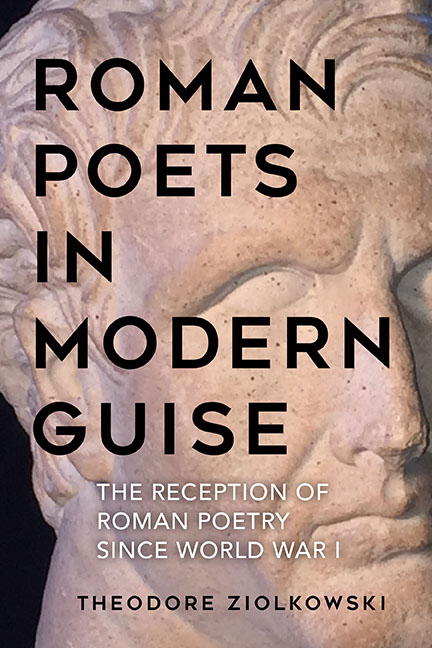2 - Virgil’s Eclogues
Published online by Cambridge University Press: 21 October 2020
Summary
Encounter in Crete
In the memoir of his tramp across Europe in the 1930s, Patrick Leigh Fermor glances forward to relate an anecdote from his war experiences as a British commando in Crete. In 1944, working with a band of guerrillas, he planned and executed the kidnapping of the German general Karl Kreipe, with whom they fled into the mountains. Three days later, “during a lull in the pursuit, we woke up among the rocks just as a brilliant dawn was breaking over the crest of Mount Ida,” where they had been climbing for the past two days.
Looking across the valley at this flashing mountain-crest, the general murmured to himself:
Vides ut alta stet nive candidum
Soracte …
It was one of the ones I knew! I continued from where he had broken off :
nec jam sustineant onus
Silvae laborantes, geluque
Flumina constiterint acuto,
and so on, through the remaining fives stanzas to the end. The general’s blue eyes had swivelled away from the mountain-top to mine—and when I’d finished, after a long silence, he said: “Ach so, Herr Major!” It was very strange. As though, for a long moment, the war had ceased to exist. We had both drunk at the same fountains long before; and things were different between us for the rest of our time together.
Peter Levi suggests that “that was the last moment of the old Europe” characterized by its familiarity with a European culture as personified by Horace. The two men—the young British officer and the older German general—shared a common heritage: a classical schooling that enabled them to quote freely from the Odes (here: 1.9) of the Roman poet whose works had provided for centuries some of the most popular Latin texts. (Fermor had been expelled from Kings’ School, Canterbury, without finishing; but he confesses a particular fondness for Horace.) They had “drunk at the same fountains” as James Joyce's Stephen Dedalus, who recalls that “the pages of his timeworn Horace never felt cold to the touch even when his own fingers were cold: they were human pages” whose “dusky verses were as fragrant as though they had lain all those years in myrtle and lavender and vervain.”
- Type
- Chapter
- Information
- Roman Poets in Modern GuiseThe Reception of Roman Poetry since World War I, pp. 30 - 75Publisher: Boydell & BrewerPrint publication year: 2020



